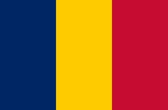
Call 0330 880 3600 Calls may be monitored or recorded. Opening Times.
- TRAVEL INSURANCE
- COVID-19 COVER
- More Options
- Help & Advice
- Existing Customers

Call 0330 880 3600 Calls may be monitored or recorded. Opening Times.

Need help?
UK Customer Services0330 880 3600*
Open Monday to Friday 9:00am to 6pm, Saturday 8:30am to 4pm and closed Sundays.
*Calls are recorded for training and quality purposes.

Official name:Republic of Chad
Capital city: N’Djamena
Official language: French, Arabic, Sara
Population: Around 18.5 million
Currency: Central African CFA franc (XAF)
Time zone: GMT+1
Driving side: Right
Climate: Hot and dry in the north, with a Sahelian climate in the centre and a tropical, wetter climate in the south. The rainy season is generally May to October in the south and June to September in central regions, while the far north receives little rain year-round.
Chad, a vast landlocked country in north-central Africa, is defined by stark contrasts. The arid Sahara dominates the north, the central Sahel zone supports nomadic herders, and the fertile south sustains agriculture. While rich in oil and mineral resources, Chad remains one of the world’s least developed countries, facing challenges of poverty, insecurity, and limited infrastructure. For travellers, Chad is not a mainstream tourist destination, but it offers dramatic desert landscapes, wildlife reserves, and a culture shaped by diverse ethnic groups.
Chad shares borders with Libya, Sudan, the Central African Republic, Cameroon, Nigeria, and Niger. Its most famous natural feature is Lake Chad, once one of Africa’s largest lakes but now greatly reduced due to drought and overuse. The Ennedi and Tibesti mountains provide striking scenery, with Emi Koussi, an extinct volcano in the Tibesti range, rising to 3,415 metres as the country’s highest point. Natural hazards include drought, dust storms from the Harmattan winds, and periodic locust infestations.
International access is primarily through N’Djamena International Airport, but flight connections are limited. Overland travel is difficult and dangerous, with poor road networks and a high risk of banditry, particularly outside the capital. The FCDO currently advises against all but essential travel to most parts of Chad due to security risks, including armed conflict in border regions. Accommodation of international standard is mostly confined to N’Djamena, though some lodges operate in Zakouma National Park, a rare highlight for adventurous wildlife enthusiasts.
All visitors require a visa, which must be obtained in advance from a Chadian embassy or consulate. A passport valid for at least six months is essential, and a yellow fever vaccination certificate is often requested on arrival. British nationals in Chad can seek consular assistance through the British Embassy in N’Djamena. Immigration rules require visitors to register with the authorities within 72 hours of arrival.
The official currency is the Central African CFA franc (XAF), which is pegged to the euro and used across several central African states. Cash is essential, as credit cards are rarely accepted and banking facilities are very limited. ATMs are scarce and unreliable outside N’Djamena. Travellers should carry euros or US dollars for exchange. Chad is an expensive country to visit relative to local income levels, with high costs for fuel, imported goods, and secure accommodation.
Healthcare in Chad is extremely limited, and standards are well below European levels. Facilities outside the capital are basic, and even in N’Djamena medicines are often in short supply. Evacuation to another country is usually necessary in the event of serious illness or injury. Malaria is endemic, particularly in the south, and other insect-borne diseases such as yellow fever and meningitis are present. Tap water is unsafe, and food hygiene standards are poor. Travellers should ensure they are up to date with routine immunisations and consider vaccinations for yellow fever, typhoid, meningitis, hepatitis A and B, and rabies. Comprehensive medical and evacuation insurance is essential.